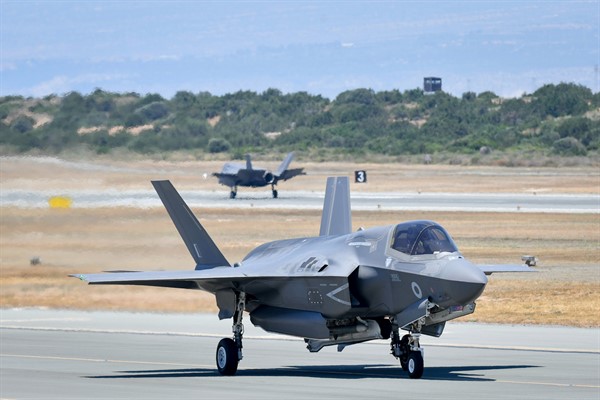In a long-anticipated move, the White House recently notified Congress of its intent to sell advanced F-35 fighter jets to the United Arab Emirates. The Trump administration was able to overcome Israel’s initial objections to the move, which followed the normalization agreement that the U.S. brokered between the UAE and Israel. If the deal goes through, it will make the UAE only the second Middle Eastern country after Israel to fly the F-35, though Saudi Arabia and Qatar have also expressed interest. Turkey had been a partner in developing the F-35 but was kicked out of the program by the U.S. last year.
With the White House pushing to finalize the deal on an accelerated timetable before Joe Biden’s inauguration, Congress should reject the sale of the F-35 to the UAE, or any other Gulf state for that matter. If the sale goes through, it would upset the balance of power and provoke an arms race in a volatile region. The U.S. could better foster its allies’ security instead by helping them shore up deficiencies in their existing defensive systems.
While many Gulf states do face security problems, their militaries suffer from defensive rather than offensive shortcomings, which would not be addressed by the F-35. Ballistic missiles and drones pose the most immediate security threats to the UAE and Saudi Arabia, as evidenced by the 2019 attacks on oil facilities in eastern Saudi Arabia, and the ongoing drone campaign waged by Houthi militants in neighboring Yemen, where Saudi Arabia is waging a costly and bloody air war. The U.S. has already provided extensive defense weapons to Gulf countries, including the Terminal High-Altitude Area Defense system, known as THAAD, and Patriot surface-to-air missiles. Despite heavy investment in missile defense, however, Saudi Arabia was unable to stop the swarm of drones and cruise missiles that hit its oil plants last year, mostly due to its inadequate radar systems. Consequently, shoring up Saudi radar capabilities is the more prudent move to address Riyadh’s security concerns.

